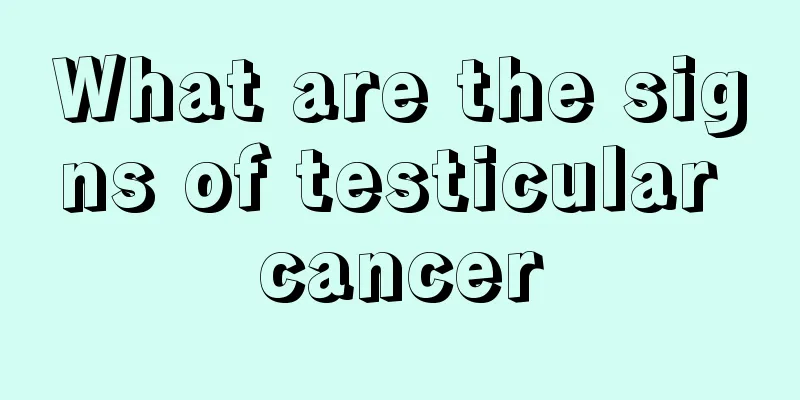How to use anti-inflammatory drugs for bronchial pneumonia

|
Bronchopneumonia is a disease mainly caused by lung infection. It is common in newborn babies. If not treated correctly, it may cause a series of problems such as chest tightness. It will not only affect the smoothness of the respiratory tract, but in severe cases it will also lead to other complications. So after bronchopneumonia occurs, can anti-inflammatory drugs be used to help recovery? (1) Antimicrobial treatment Principles: ① Select sensitive drugs according to the pathogen: Before using antimicrobial drugs, appropriate respiratory secretions should be collected for bacterial culture and drug sensitivity testing to guide treatment; before the culture results are obtained, sensitive drugs can be selected based on experience; ② The selected drugs should have a high concentration in lung tissue; ③ Early use of drugs; ④ Combination use of drugs; ⑤ Adequate dose and sufficient course of treatment. Children with severe cases should receive combined intravenous medication. Antimicrobial treatment for community-acquired pneumonia (CAP) should be limited to bacterial pneumonia, mycoplasma pneumonia, chlamydial pneumonia, fungal pneumonia, etc. There is no indication for the use of antibiotics for simple viral pneumonia, but attention must be paid to the possibility of mixed infection with bacteria, viruses, mycoplasma, chlamydia, etc. Children under 3 months old are likely to have Chlamydia trachomatis pneumonia, while those over 5 years old have a higher rate of Mycoplasma pneumonia and Chlamydia pneumoniae pneumonia. Therefore, macrolides are the first choice, especially the new generation of macrolides, which have a broad antibacterial spectrum and can cover most of the pathogens of CAP in children. When antimicrobial drugs are used to treat CAP in children aged 4 months to 5 years, especially in critically ill children, it should be considered that the pathogen is macrolide-resistant Streptococcus pneumoniae. High-dose amoxicillin or cephalosporin may be the first choice. For fungal infections, antibiotics and hormones should be discontinued and nystatin nebulizer inhalation should be used. Clotrimazole, diflucan or amphotericin B can also be used. (2) Antiviral treatment ① Influenza virus: Oseltamivir, zanamivir and panamivir are neuraminidase inhibitors, which are effective against both influenza A and B viruses. Amantadine and rimantadine are M2 membrane protein ion channel blockers that are only effective against influenza A virus. ② Ribavirin (viravirin) can be administered by nasal drops, nebulized inhalation, intramuscular injection, and intravenous drip, and can inhibit a variety of RNA and DNA viruses; α-interferon (IFN-α), a course of treatment is 5 to 7 days, and can also be nebulized inhaled. ③Ganciclovir, also known as ganciclovir, is the first-line drug for cytomegalovirus infection in children. |
<<: Expectorant and anti-inflammatory drugs
>>: Take anti-inflammatory medicine for fish bone stuck in your throat
Recommend
Black bugs appear on mung beans
If mung beans are not stored properly, they are p...
Nursing taboos for patients with osteosarcoma
What are the nursing contraindications for osteos...
How to make your nose straighter without plastic surgery, must-know makeup tips
Women all hope that their noses can be higher and...
The purpose of oxygen atomization inhalation
Nebulization is a good method for treating pharyn...
What does it mean if I feel like there is something between my knees?
Many teenagers who love sports have experienced t...
What should lung cancer patients pay attention to in their diet? Lung cancer patients should pay attention to these points in their diet
What should lung cancer patients pay attention to...
Can grapefruit peel repel cockroaches?
In daily life, cockroaches are very common to man...
What are the steps for cervical cancer screening
Cervical cancer screening usually includes the fo...
Four major types of prostate cancer
Prostate cancer (PCa) is the most common malignan...
What are the symptoms of brain cancer
What are the symptoms of brain cancer? Brain canc...
Five blue dots tattooed on the wrist
Some people like to observe all kinds of things i...
Pain at the junction of the thigh root and hip
Pain at the junction of the thigh root and hip ma...
What is the reason for sore feet and lack of strength
The symptom of sore feet and weak feet mainly occ...
What causes puffy eyelids?
There are many reasons for eyelid swelling. First...
It feels especially good to use hot water to cure athlete's foot
For patients with athlete's foot, the biggest...









